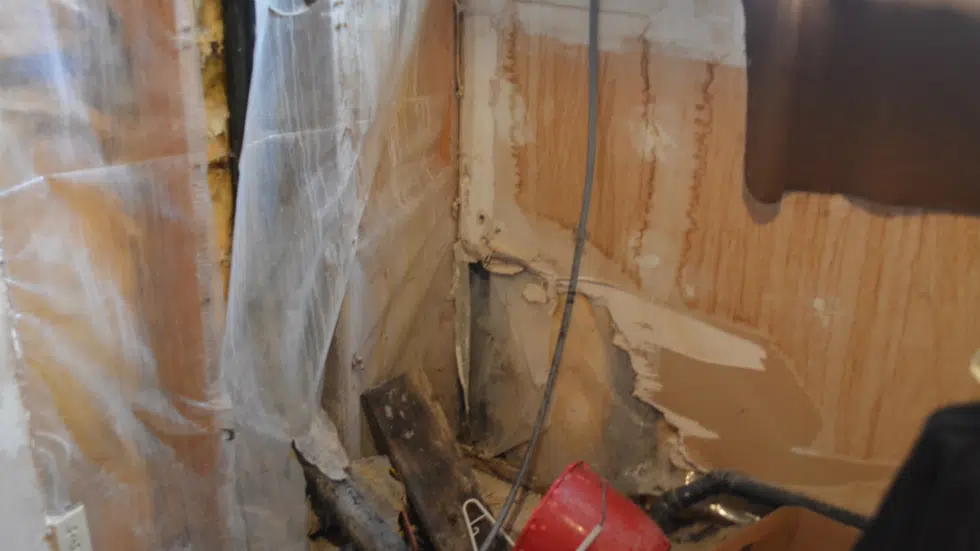
Red Pheasant residents frustrated with ‘outrageous’ living conditions
Residents on Red Pheasant First Nation’s are living without running water or heat and have raw sewage on the ground. Many of those residents are accusing the Chief and council of neglecting their duties to help. But according to Red Pheasant Chief Clint Wutunee, the poor housing conditions is due to a lack of government funding.
Several residents invited battlefordsNOW to the reserve, 30 minutes south of the Battlefords, for a tour of the First Nation. Many of the homes only recently received heat by way of new furnaces, but many homes still have plastic taped over broken windows, allowing the majority of heat to escape.
The situation is worse for others like Carmen Peyachew, who has been without running water for two months. The single mother is pregnant and has to travel to a well to supply her home with water.
“All I need is my water pump fixed or a new one,” Peyachew said. “My shower, toilet and washing machine work, but I have no water to use them. I can’t bathe my child or wash my dishes. I have to either walk or get a ride to fill up jugs at the well.”


